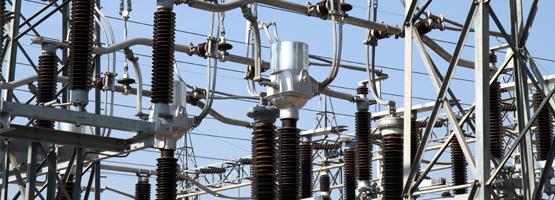Supply security means that consumers are able to procure the desired quantity of electricity at all times at the necessary level of quality and at reasonable tariffs. In addition, it means that the power plants in Switzerland and elsewhere, as well as the available networks, are able to meet demand at all times. System adequacy analyses are the main tool for assessing the medium-term and long-term electricity supply security. The entities responsible for electricity supply security are specified in the corresponding legislation.
Responsibilities in the field of electricity supply security
The security of the electricity supply lies within the responsibility of the electricity industry. On the other hand, the government is responsible for establishing a suitable legal framework for the industry and only intervenes if the electricity industry is no longer able to guarantee a secure electricity supply.
Such interventions consist of implementing measures stipulated in the National Economic Supply Act (NESA) to promptly remedy short-term deficits in the electricity supply and subsidiary measures under article 9 of the Federal Electricity Supply Act (StromVG) to guarantee the medium-term and long-term supply. The Federal Electricity Commission (ElCom) systematically monitors electricity supply security. The Swiss Federal Office of Energy (SFOE) develops scenarios (energy perspectives) in the energy sector and evaluates these in respect of the political measures (laws and by-laws) required in the energy industry.
A significant element in electricity supply is the principle of subsidiarity, whereby primarily those tasks are regulated which cannot be taken care of by the electricity industry (in principle, private measures take priority over state measures).
System adequacy
Securing the electricity supply is based on the interaction between power plant capacities and the electricity grid, which facilitates the transmission and distribution of the produced energy. The electricity networks supplement the domestic power plant capacities and are of equal importance with respect to supply security. In addition, Switzerland is heavily networked and thus also depends on the circumstances in its neighbouring countries. In view of this, international harmonisation is a crucial factor for maintaining Switzerland’s electricity supply security. Because the circumstances are liable to change over the course of time due to strategic reorientation in other countries (in particular within the EU), comprehensive periodical analyses of system adequacy have to be carried out in order to accurately assess the supply security situation. System adequacy analyses are based on a comprehensive modelling of the supply situation which reflects the strategic orientation in the fields of production, consumption and the necessary network infrastructure.






